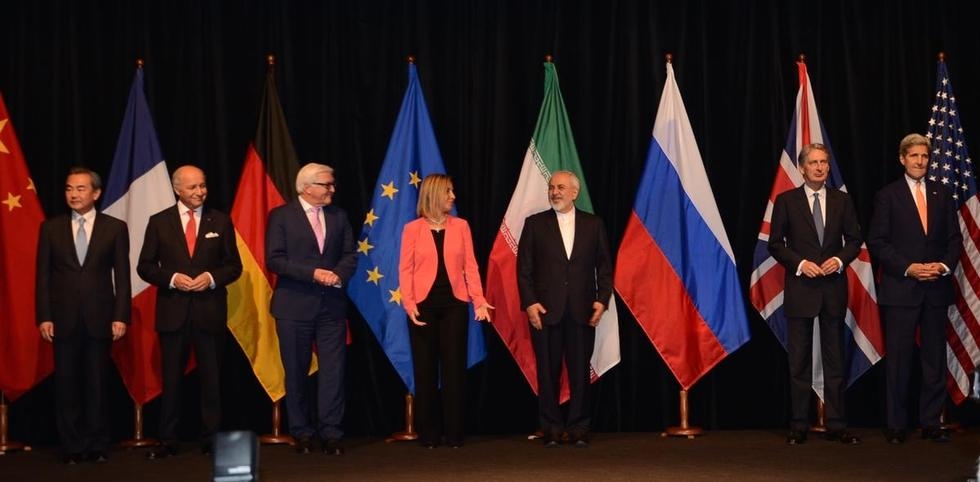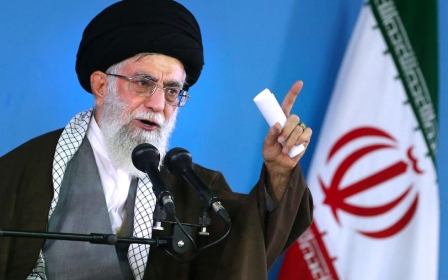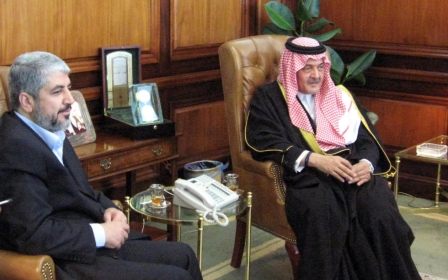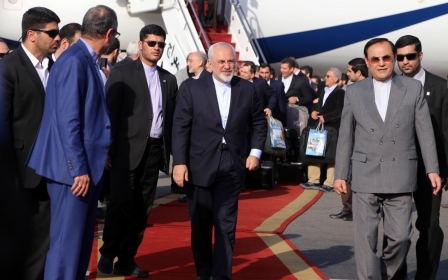UN approves Iran nuclear deal

The UN Security Council unanimously voted on Monday to adopt a resolution that will allow for the lifting of international sanctions that have crippled Iran’s economy for decades.
The resolution is regarded as a formality, after Iran and the world powers known as P5+1 reached a landmark nuclear deal on 14 July after nearly two years of negotiations.
The deal, known as the Joint Comprehensive Plan of Action, was signed on the same day in Vienna. The text calls for the lifting of sanctions potentially worth hundreds of billions of dollars in exchange for Iran curbing its nuclear programme.
Sanctions on arms and ballistic missiles however will remain in place for another five years.
The UN resolution calls for the deal’s “full implementation on the timetable established” and urges UN member countries to facilitate the process.
The deal is valid for 10 years, and includes a snapback provision that will automatically return to reinstate the original sanctions, should Iran violate any of the terms.
Only one of the UN Security Council’s five permanent members would need to use its veto powers to demand that the sanctions be re-established during the 10-year period. Yet the P5+1 countries have already declared their intention to extend this provision by an additional five years, for a total of 15 years.
Once the council receives confirmation that Iran is fully committed to a peaceful nuclear programme through a report by the International Atomic Energy Agency (IAEA), certain provisions of the seven UN sanctions resolutions against Iran will be terminated.
The resolution calls on Iran to “cooperate fully” with the IAEA, including limiting the number of centrifuges for Iran’s fissile material.
EU to encourage a ‘moderate’ Iran
On Sunday, the nuclear deal was presented to the United States Congress, where lawmakers have 60 days to review the text on international nuclear inspections and the lifting of sanctions.
President Barack Obama, who faces stiff opposition to the deal from Republicans in the House of Representatives and the Senate, has vowed to exercise his veto if Congress rejects the proposal. That can only be countered if a two-thirds majority in both houses was reached to oppose the deal.
In light of the cold relations between Iran and the US, Philip Hammond the UK Foreign Secretary expressed his hopes that the European Union will have a role in inspiring Iran to act like a moderate and progressive power in the region.
“In Iranian mythology, relationships with the US are very difficult. Relationships with Europe are less difficult,” he said. “Therefore, we perhaps have an opportunity to play a role in trying to encourage Iran to think about moderating its behaviour in the region.”
“We hope to see an Iran that is less negative in its dealings in the region and then starts to behave as a more constructive power in the region,” he added.
Hammond’s comments were echoed by EU foreign policy chief Federica Mogherini.
“The EU is ready to play its role to help and facilitate the rebuilding of trust in the region,” she said.
Military action not ruled out
One of the most vocal opposing voices has been Israeli Prime Minister Benjamin Netanyahu. Who labelled the deal as a “historic mistake” and believes that Iran now has a chance to develop nuclear weapons, while an end to sanctions will provide the country with money to fund terrorism.
Ahead of a visit to the region, US Defence Secretary Ashton Carter made it clear that the nuclear deal does not rule out military action should Iran not uphold its end of the agreement.
“One of the reasons why this deal is a good one is that it does nothing to prevent the military option,” he said to reporters on board his flight to Israel, where he will hope to smooth over concerns among US allies over the deal.
“We are preserving and continually improving [military options]” he added in the case that Iran violates the deal.
Carter will stop in Israel, Saudi Arabia and Jordan to ascertain closer cooperation regarding security and military ties.
Iran’s foreign minister Javad Zarif hit back at comments made by the US and Israel for not shelving the military option.
“Applying force…is not an option but an unwise and dangerous temptation,” Zarif was quoted as saying by the official IRNA news agency. “There are people who talk about illegal and illegitimate application of force” for their own purposes.
Zarif had described the nuclear deal as a “victory of diplomacy over and violence”.
New MEE newsletter: Jerusalem Dispatch
Sign up to get the latest insights and analysis on Israel-Palestine, alongside Turkey Unpacked and other MEE newsletters
Middle East Eye delivers independent and unrivalled coverage and analysis of the Middle East, North Africa and beyond. To learn more about republishing this content and the associated fees, please fill out this form. More about MEE can be found here.




